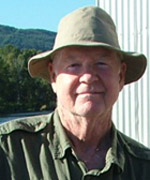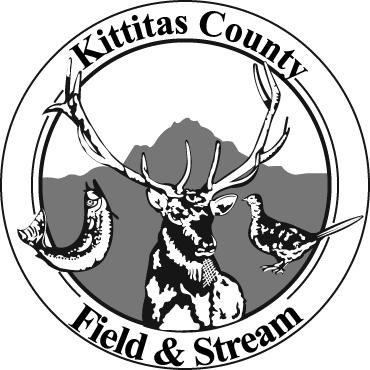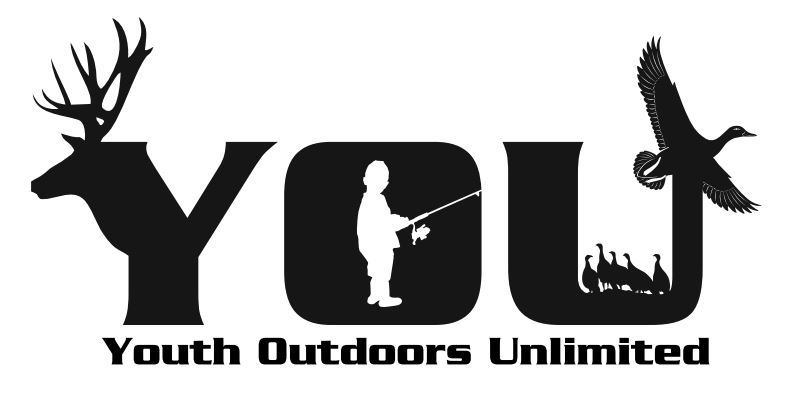Archive for June, 2020
Bigfoot in Paradise??
Homey cornered me outside the Ellensburg Fred Meyer last week after trotting through a couple rows of parked cars. He was excited about wild places finally opening. And he had a very specific mission in mind.
“Look,” he said breathlessly, “Bigfoot has been in the news across the state since before the big shutdown. There was that video of one using that wildlife bridge thing up by Snoqualmie in January, and another one seen up north by Sherman Pass. And I’m thinking that after the shutdown and people staying out of the hills, that a guy ought to be able to take a ‘bigfoot drive’ with his family and have a good chance to see one in person. I know you believe in these guys. Where should we go look around? What do you think? Hmmm?”
Well. I am a believer. And there has been a lot of “bigfoot” noise this year. (Google “bigfoot in Washington” and see for yourself. Particularly, check out the links to the Bellingham Herald and Mercury News.) What to say… I finally just shrugged and suggested any remote drive with okay and safe roads – maybe starting with Bethel Ridge, above Rimrock Lake off Highway 12.
I’m not entirely sure what that pic and video from our Washington State Department of Transportation are showing, but both are certainly intriguing. I have yet to see Sasquatch with my own eyes, but I have heard one eyewitness account I would take to the bank. Brother Brad Rodgers is a straight-shooter – several times publicly commended for coolness under fire and credited with saving lives in high mountain glacier mishaps. Brad says it; I believe it.
After a long day of scrambling across the basalt at the mouth of Whiskey Dick Creek, along the Columbia River, several of us were parked around a nice fire on a chilly 2001 evening. Brother Brad agreed to tell his story:
“Well, about 1977…my old girlfriend Rory and I, and another couple, Mike and Connie, went canoeing down the White River, north of Lake Wenatchee. We put in at the Tall Timbers… to float down to the lake. The plan was…two nights out.
“So we canoed down probably five… six miles that afternoon. We found this sand bar and were setting up tents and whatnot and Rory and I wanted to get some firewood and there was this great pile of brush on the other side. Mike and Connie stayed in camp and Rory and I commuted across the river to fill up the canoe with good firewood. We walked back into the woods 20 yards, or so…out of sight of each other, but not very far.
“All of a sudden there was this blood-curdling scream from out in the boonies. I thought it was Rory, so I went running back. And she thought it was me and we kinda met in the middle and ‘What the %?$# was that?’ It was like nothing I had ever heard before and I’ve heard cougar and bear and all kinds of things…and it was nothing like that. It was this deep, loud, guttural scream like somebody being disemboweled. Very big. So we went, ‘Well, that was kinda weird, and it sounds like it’s far enough that whatever it was isn’t here now.’ So we loaded the boat and went back across to Mike and Connie and they said ‘Yeah we heard it, and thought it was weird and well, we don’t know what it is and we feel pretty safe.’
“So we built a big fire – like this one – and made dinner. We were around the fire – like this – and we heard stuff kinda rustling in the bushes… We thought deer or somethin’ and Rory and I went in our tent and Mike and Connie went in theirs. As soon as we zipped up the tents, and turned off the lights, one started screaming again. And then another. And another. Until there were like six or seven distinct different ones, all joined in. And there was movement all around us, through the bushes. They were close enough that they could see us, because when we unzipped a tent, they=d stop. And we zipped it back up, they=d start again. It just kept us up all night long…and it was absolutely terrifying…one of the few times that I felt really out of control and nothing you could do. We basically stayed up talking to each other, and just reassuring and reassuring each other and just kinda hanging on…
“First light, we just threw everything… Just pulled up stakes and pulled out tent poles and just threw everything in the canoes and we got outta there.
“The river is a real S-curve… We camped on the north side and the river went around to the west and came back to the east in a hairpin. And, as we made this first bend in the river, facing east again, Mike and Connie were in the front canoe, just a few yards ahead of us. They saw it first. It was standing in water right below its knees and this big hairy thing… and it took off running through slide alder, thick… And it just took off through there, just breaking slide alder, just hand over fist, just breaking it like it was a matchstick… a dry matchstick.
“I was in the back of our second canoe and by the time I got there, I just saw the very back of it, as it went crashing through the bushes. So I didn’t get the full face-on view that Mike and Connie got, but…it was not a bear. It was not anybody playing tricks. And it was screaming just like the day before. And we back-pedaled for a long time… thinking about what we were gonna do and ‘God, do we continue..’ and ‘what the hell..’ And finally after we heard this thing go through the bushes a long ways, it was far enough it didn’t feel like a threat to us, and so we went over to the spot it was standing in the water. In the wet sand …there was a footprint that was like this big, and like that wide and about that deep into the wet sand. So it was a big boy.
“[I]nstead of camping another night…we just kept on going all the way to Lake Wenatchee.”
Well, here’s to summer – and Sasquatch/Bigfoot stories – in Paradise.
Comments Off on Bigfoot in Paradise??
Of Lightning, Thunder, and Life
No doubt you noticed those late night – and very early morning – thunderstorms rolling across Paradise last week. So rare here, but so full of life! Watching and hearing and feeling that crashing at 4:45 a.m. seemed to trigger sparks in every cell of my body. For a while there, it was, “What pandemic?” It was a much appreciated early Father’s Day gift.
I’d almost forgotten how much I missed my old friend lightning until that magic light and sound show last week. I’ve loved lightning since I was a kid in East Wenatchee, Washington.
By mid-spring, the waiting would be almost unbearable. I don’t think I knew exactly what was coming, but I recall that, as those warm Chinooks swept down off the Cascades and out to the Columbia Basin, my anxiety rose. As the air got warmer and drier, it became harder to concentrate on all three “R”s. Then one morning, there would be a sweet discomfort to the air, even inside. On the walk to school, I couldn’t get enough of that air.
By noon, the clouds would be building. And by the time I walked up the drive, after that mile walk home from school, it would be everywhere. Lightning seemed to fill the sky, as the earth trembled with its thunder. The dry, nervous air of spring changed with the rain. I remember feeling fully alive, watching, transfixed, until the excitement passed.
I have often thought that I became a meteorologist because of that lightning – that “Alka-Seltzer” of the air. Dancing between negative and positive charges on the ground or in a cloud, it neutralizes those atmospheric ions that can make us irritable or uncomfortable.
Last week’s flashing lightning, and that slight acrid ozone smell lingering behind it, carried me back to Lawrence, and the University of Kansas, and the spring of 1972.
As a grad student, the first class I taught at the University of Kansas was full of young people who saw no sense in studying weather. Since they drove air-conditioned cars and lived and studied in climate-controlled rooms, they reasoned, there was no need. They felt totally insulated from Nature.
But Kansas is lightning country! I loved those thunderstorms on the prairie. Commonly, they were (and still are) nighttime storms – something we only rarely see here in the Northwest or in the Rockies where I did my TV weatherman gig for some years. In Kansas, I could lie in bed and watch the magic out my window as it swept in from the west. Lightning would dash and sizzle and hang from cloud top to cloud top for a couple hours or more, sometimes. Finally it would flash and crash over and around us. I loved it.
Here in our mostly-dry part of the world, we notice it less than in more humid parts of the country, but the discomfort people feel with either “very dry” or “very moist” air often has to do with its electrical ions. With very dry air, especially in a warm wind – as in the occasional Chinook of Wenatchee or south of Yakima, or the Santa Ana of the Los Angeles Basin – an excess of negative ions may build up. With such a negative ion excess, lots of folks get irritable and short-tempered. Water vapor molecules, on the other hand, carry an excess of positive ions. With high levels of water vapor in the air (that “high humidity”), we tend to be fussy and uncomfortable, with a “leave me alone” attitude.
Anyhow, that spring in Lawrence we had a week of very warm, windy, and very dry weather. Grad students squabbled over anything from cubicle to cubicle in our study room (“Do you HAVE to turn those *!&#! pages so loud?”). It was great. Then, the night before an early-morning class with my “insulated” students, a line of thunderstorms moved through – one of the best shows ever. Two and a half hours of fireworks. As it approached, drawing warm moist air in ahead of it, positive ions built up in our house. My wife couldn’t sleep, and our kids, one by one, drowsily came into our room. “What’s wrong?” I’d ask. “I don’t feel good,” they’d say. “Well, what’s wrong, honey?” “NOTHINGGG! I just don’t feel good. I can’t sleep.” As they huddled around our bed, separated, groaning, I turned back to the show.
As the storm, at last, passed over us, at least a dozen lightning bolts crashed and exploded within a hundred yards of us. As it moved on, having sorted out our ionic imbalance, my tribe had crashed. Michelle was asleep on the carpet near her mom, Nicole on the floor by her bed and Tim was sprawled onto his, with one foot on the floor.
My young students were all yawning the next morning. “Just couldn’t sleep ’til after the storm,” someone said. “Not insulated enough,” I guessed. Our grad student study room was suddenly peaceful and friendly again. Go figure…
Being struck by lightning can mess up your whole day, so it’s not to be played with, of course. But you gotta love lightning when you have the chance.
Happy summer!
Comments Off on Of Lightning, Thunder, and Life
All about Aliens (Not that Kind)
Finally, fishing is opening up around the West. We are starting to see possibilities – again – on waters across the state and into neighboring states. We are also seeing a big increase in the movement of fishing boats across state lines. With that movement comes a heightened attention to any unwelcome hitchhikers – alien species – that our boats and fishing gear might be carrying.
This is important. The amount of damage done to fish habitat and the aquatic environment by alien species – which may have no natural enemies or control agents in their new homes – can be devastating.
We probably most often hear about Eurasian milfoil (Myriophyllum spicatum), the water vine dropped all over the state by boats carrying just a few stems from infested waters. It chokes out fishing and fun in our ponds by late summer; and clearing it is a major process. Treatments are ongoing. You will find all you want to know by googling “milfoil in Washington State.”
Another Asian native water species is hydrilla (hydrilla verticillata), a.k.a. water thyme. This one has largely been eradicated in Washington, but in other states around the West it is apparently invading rivers, irrigation canals, lakes and ponds, destroying fish habitat, clogging intakes and fish screens and interfering with fishing, boating and swimming. Active eradication programs are underway around the West, and Washington inspectors are paying close attention to all incoming boats and gear.
Invasive invertebrates are today’s biggest concern. They arrive with our boots, fishing gear and boating equipment.
New Zealand mudsnails (Potamopyrgus antipodarum) are now found in fishing waters throughout the West. Elongated, less than a quarter inch in length and brown (black if wet), they travel on the seams and laces of wading or (even) hunting boots. A single mudsnail can colonize a new location. Fishermen returning to Washington from streams across the West are asked to carefully scrub boots and field gear under a high pressure hose until no visible traces of mud or sand remain.
Right now, zebra/quagga mussels (Dreissena polymorpha) are atop the minds of those trying to keep our watersheds safe – They have been spreading across North America since the 1980s. From microscopic to two inches long, with light and dark stripes and razor-sharp shells, these critters clog pipes, encrust other aquatic life, and ruin boats, motors, anchors, fishing gear and other hard objects. Zebra mussels are notorious for their ability to colonize water supply pipes of hydroelectric and nuclear power plants, water supply plants, and industrial facilities. Colonization restricts the flow in pipes, creating problems in heat exchangers, condensers, and fire-fighting equipment, as well as air conditioning and cooling systems. They essentially make beaches unusable, clog water filtration pipes, and destroy boat engines. While there is not yet much information on how these mussels affect irrigation, farms and golf courses seem to be likely candidates for infestations.
Why the very high level of alert in Washington today? The Columbia River is the only basin in the U.S. that remains mussel-free, and the U.S. Fish and Wildlife Service estimates that if they make it into the Columbia, they could cost hydroelectric facilities up to $300 million a year, with hundreds of millions more in environmental damage and increased operating expenses for fish hatcheries and water diversions.
Even with careful inspection, these critters can be very hard to find. Thus, the Washington Department of Fish and Wildlife (DFW) has adopted “Puddles,” its latest weapon in the fight to keep invasive species out of our state. At an animal shelter in Fresno, California, Puddles caught the attention of the Green Dog Project’s “Rescued for a Reason” Program, which contacted Mussel Dogs, of Oakdale California. There, Puddles learned to use her great nose to detect mussels. With a Bureau of Reclamation grant, DFW purchased Puddles for our Aquatic Invasive Species Check Station program.
She works: over the Memorial Day weekend, Puddles earned her keep. At a DFW check station east of Spokane, a boat traveling from Lake Havasu, Arizona, was checked. It had already been decontaminated three times (in Montana and Idaho), yet Puddles’ nose found mussels that several sets of human eyes had missed. Tiny mussels were found behind the boat’s sonar system – mussels that could have caused millions of dollars in damage in a body of water that doesn’t already have invasive mussels.
Puddles is just one weapon in the battle against invasive mussels. DFW asks that all boat owners help prevent the spread of trouble by cleaning, drying, and draining all watercraft (including kayaks and other non-motorized vessels) every time they come out of the water. Always check drywells and any gear that was in the boat, too. And, of course, stop at every boat check station. Find more about all of this at wdfw.wa.gov/species-habitats/invasive.
This is important: it’s about the future of waters, recreation and economy.
Happy summer…
Comments Off on All about Aliens (Not that Kind)
At Last! Free Fishing Weekend!
Probably because we’ve been “sheltered” for the last few months, and it coincides with increasing outdoor “openings,” this year’s Washington State Free Fishing Weekend is a bit more exciting than normal. It is always the weekend following the first Monday of June, and has become, for a great many families and their youngsters, the traditional backdrop for the waterside social events of the year.
Free fishing weekend was established to introduce adults and kids to fishing; to get them hooked or re-hooked on fishing as great family recreation. It also creates a fine opportunity for you to teach a neighbors or friends – and their kids – the ins and outs of your fishing passion and recreation.
This Saturday and Sunday, you will need no license to fish in any open water in the state. Nor will you need a Department of Fish and Wildlife (DFW) Access Pass or Discover Pass to be on any public fishing water on DFW or State Parks ground. You will need to abide by size and bag limits and closures, but opportunities abound, and plenty of fat trout have been dropped into local waters for you.
Check out the 2019-2020 Washington State Fishing Regulation Pamphlet (in effect through 30 June) for rules and regulations. You will find the pamphlet free at any of our local hunting and fishing license dealers or online at wdfw.wa.gov/fishing/regulations. You will also find that DFW has posted a great deal of help and many fishing tips (including recent stocking reports) at wdfw.wa.gov/fishing/free. This site also has a great deal of useful and valuable information for folks who already have licenses and fish regularly.
Traditionally, the big excitement of Free Fishing Weekend has been the kid fishing derbies across Paradise and across the state. Watching groups of parents, grandparents and friends gathered around fishing holes cheering for kids fishing has long been a very appealing way to spend time over this weekend. And why not? As a friend repeatedly reminded me some decades ago, “Teach a kid to fish and she’ll hassle you for more ‘til she’s grown and gone!” It certainly is a primary reasons we work to get kids hooked on fishing. Sadly, this year, the Covid 19 pandemic led to the cancellation or postponement of virtually all – county and state wide – kids’ fishing events.
Still, virtually all those waters on which kids usually enjoy the derbies have recently planted trout. In the last couple weeks waters in all parts of Kittitas County (from Mattoon and Fio Rito Lakes to Cooper Lake) have all received feisty fat rainbows. As mentioned above, you will find more about these recent plants and the weekend itself at wdfw.wa.gov/fishing/free. This is still a perfect weekend to get kids and friends on the water, fishing.
Truth be told, while most of the fishing around Paradise will be for trout of one type or another, you never know what a youngster might latch onto on a particular day. A couple decades ago, I pulled into the McCabe Pond parking lot with Last-of-the-Hucklings Edward and his two older sisters, Tena and Anna. The kids were eight to fourteen, and ready for some serious fishing. As the morning wore on, Edward was getting skunked, but always one to make lemonade out of lemons, he took up the cause of cheering his sisters to bigger and better fish dreams. When Anna’s rod started twitching, she grabbed it and set the hook. Whatever was on the other end almost took the rod from her little hands. Over the next twenty minutes, the critter on the line triggered startled squeals of delight as it yanked away. Edward cheered Anna on, and the two-foot-long fish finally thrashed its way into the weeds at our feet. Turned out, that five-pound-plus channel catfish didn’t like being released any better than it had liked being caught. As mud flew and kids slipped and laughed, we created an ongoing family legend and cemented several lifelong fishing passions.
So. Get out, go fishing AND be safe. Most every agency involved with supporting folks outdoors these moments has signed on to the #ResponsibleRecreation (hashtag ResponsibleRecreation) campaign. Our Department of Fish and Wildlife, With State Parks and the Department of Natural Resources have been actively campaigning for safety – and continued caution – in your outdoor recreation. Some new campgrounds have opened and things are relaxing a bit, but overcrowding and leaving messes on our public ground could be cause for reversing some of the recent moves to open more and more of our outdoors.
Folks are strongly encouraged to take the #ResponsibleRecreation pledge. It simply means: planning ahead and getting licenses and park passes online; recreating close to home; following best practices for avoiding Covid-19; following state and federal guidelines; packing out trash as a courtesy to others and avoiding an appearance of overuse; and sharing your adventures respectfully on social outlets. Find more at www.recreateresponsibly.org/.
Go fishing. Take a neighbor or two. Take a youngster or two. This weekend could be a find start to a fishing life. Be safe.
Comments Off on At Last! Free Fishing Weekend!







